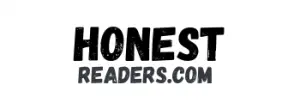Carl Gustav Jung, one of the most influential figures in the world of psychology, was a Swiss psychiatrist and psychoanalyst who founded analytical psychology. His work has had a lasting impact on psychology, psychiatry, philosophy, and religious studies.
In this article, we have delved into Jung’s extensive bibliography and selected the 10 best Carl Jung books that will provide readers with a comprehensive understanding of his theories and ideas.
Each book listed offers unique insights into various aspects of the human psyche, making them essential reads for anyone interested in psychology or personal growth.
10 Best Carl Jung Books
Top 10 best books by Carl Jung are generalized below:
1. “The Red Book” (2009)
Although “The Red Book” was written between 1914 and 1930, it remained unpublished until 2009. This fascinating and visually stunning work offers an unparalleled look into Jung’s innermost thoughts, dreams, and fantasies, as well as his confrontation with the unconscious mind.
Jung’s self-exploration in “The Red Book” serves as the foundation for many of his later theories, making it an indispensable resource for understanding his work.
2. “Man And His Symbols” (1964)
“Man and His Symbols” was Carl Jung’s last published work before his death in 1961, and it serves as a concise introduction to his complex theories.
The book explores the significance of symbols in human life, delving into dreams, myths, and art as expressions of the unconscious mind.
It is written in collaboration with several of Jung’s colleagues, making it an accessible and comprehensive guide to understanding the fundamental concepts of analytical psychology.
3. “Memories, Dreams, Reflections” (1963)
“Memories, Dreams, Reflections” is an autobiographical account of Jung’s life, experiences, and intellectual development. This book provides readers with an intimate look into the mind of one of the 20th century’s most influential thinkers.
As Jung shares his personal journey, readers gain valuable insights into the origins of his theories and their relevance to the broader human experience.
4. “Psychological Types” (1921)
In “Psychological Types,” Jung introduces the concept of personality types and the theory of psychological functions.
The book delves into the importance of understanding one’s personality type and how this knowledge can foster personal growth and improve interpersonal relationships.
As the basis for the popular Myers-Briggs Type Indicator (MBTI), “Psychological Types” is a must-read for anyone interested in personality theory.
5. “Modern Man In Search Of A Soul” (1933)
“Modern Man in Search of a Soul” is a collection of essays in which Jung discusses the challenges of the modern world and the search for meaning.
This book tackles topics such as dream analysis, the role of the unconscious mind in art, and the spiritual crisis of modernity.
Its thought-provoking content makes it an essential read for those seeking a deeper understanding of the human condition.
6. “The Archetypes And The Collective Unconscious” (1959)
In “The Archetypes and The Collective Unconscious,” Jung delves into the concept of archetypes and their role in shaping human behavior and experience.
The book explores the idea of a shared collective unconscious that contains universal symbols and themes, and how these archetypes manifest in dreams, myths, and religion.
As a foundational work on archetypes, this book is indispensable for those interested in the intersection of psychology and mythology.
7. “Answer To Job” (1952)
“Answer to Job” is a psychological commentary on the biblical Book of Job, in which Jung discusses the concept of the human psyche’s confrontation with the divine.
The book explores themes such as the nature of God, the problem of evil, and the role of the individual in the face of suffering.
By examining these themes through a psychological lens, “Answer to Job” offers a unique and thought-provoking perspective on spirituality and the human experience.
8. “Synchronicity: An Acausal Connecting Principle” (1952)
“Synchronicity” is a groundbreaking work in which Jung explores the concept of meaningful coincidences and their implications for our understanding of the universe.
In this book, Jung argues that seemingly unrelated events can be connected in a meaningful way, pointing to a deeper, underlying order.
“Synchronicity” challenges conventional notions of causality and invites readers to consider the interconnectedness of all things.
9. “Aion: Researches Into the Phenomenology Of The Self” (1951)
In “Aion,” Jung delves into the nature of the self and its relationship to the unconscious mind. The book explores the concept of the self as a complex, evolving, and dynamic entity, as well as its connection to archetypes and the collective unconscious.
“Aion” is an essential read for those seeking a deeper understanding of the self and its role in personal and spiritual development.
10. “The Structure And Dynamics Of The Psyche” (1960)

“The Structure and Dynamics of the Psyche” is a collection of essays that provide a comprehensive overview of Jung’s theories on the human psyche.
This book covers a wide range of topics, including the nature of the unconscious mind, the role of dreams and fantasies, and the development of personality.
As a comprehensive guide to Jung’s core ideas, “The Structure and Dynamics of the Psyche” is an invaluable resource for students, scholars, and enthusiasts of analytical psychology.
These 10 Carl Jung books offer a thorough and insightful exploration of his groundbreaking theories and concepts.
From the depths of the unconscious mind to the nature of personality, archetypes, and the search for meaning, these works provide a solid foundation for understanding the complexities of the human psyche.
Whether you are a seasoned Jungian scholar or just beginning to explore his work, these books are essential reading for anyone interested in the fields of psychology, philosophy, and personal growth.










